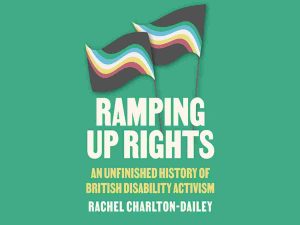The Department for Work and Pensions (DWP) has been under fire for pursuing unpaid carers over alleged overpayments of DWP Carer’s Allowance. It was a decision that has sparked outrage among advocacy groups and the carers themselves. However, now thanks to a parliamentary question from a Lib Dem MP, we also know that the DWP has been piloting harassing unpaid carers via text message, too.
What is DWP Carer’s Allowance and the overpayment scandal?
DWP Carer’s Allowance provides just £81.90 a week to those who care for someone for at least 35 hours a week. However, if a carer earns even slightly more than £151 per week from other employment, the DWP deems the entire allowance an overpayment and demands repayment, often in lump sums or monthly deductions.
As of mid-2024, around 134,000 unpaid carers will have to repay a cumulative total of £250m, adding further strain to already vulnerable households.
These individuals, who provide vital, unpaid care for loved ones, are being asked to repay millions of pounds after unintentionally exceeding income thresholds. This has caused significant financial distress for thousands of carers, many of whom are already struggling to make ends meet.
Harassing unpaid carers
Yet still, the government saw fit to trial a scheme of text messaging DWP Carer’s Allowance claimants when they either had been overpaid or were at risk of being. The trial for this originally began in May. Then, in August Lib Dem MP Wendy Chamberlain asked DWP boss Liz Kendall:
with reference to her Department’s strategy entitled Fighting Fraud in the Welfare System: Going Further, updated on 13 May 2024, whether she plans to continue the roll out of alerts telling carers that they have a possible overpayment of Carer’s Allowance.
DWP minister Stephen Timms said:
The Department is currently assessing the results of a recent trial that issued an SMS message to prompt Carer’s Allowance recipients, to remind them to contact the department to report a change of earning. Changes of circumstances can be reported through Gov.uk, telephony and post.
In May, Carers UK welcomed the move – albeit with some caveats.
Of course, in reality harassing already at-risk claimants via their phones – instead of investing in a system that actually functions properly – it simply not good enough. It serves little more than to strike fear and worry into claimants – and, as always, is putting the onus and blame onto them for the DWP not being fit for purpose.
In reality, the fault here is the DWP’s.
The DWP Carer’s Allowance scandal is its fault
Most overpayments were made because of people going over the earnings limit, while others were mistakes by the Department for Work and Pensions (DWP). Fewer than 500 cases were due to fraud.
Over two thirds of overpayments (70%) happened when people went over the earnings limit because of:
- fluctuating earnings, like zero-hours contracts, being self-employed or doing shift work
- working extra time, for example by covering a colleague or working slightly over your shift
- getting a pay rise or minimum wage increase
- getting extra pay one month, such as holiday pay or a bonus
- employer mistakes
Carers UK say many carers don’t understand the rules around the earnings limit.
So, in reality only 0.4% of DWP Carer’s Allowance overpayments were due to fraud. The rest were ultimately the DWP’s fault – either through it’s mistakes or through a system that is impossible to navigate. None of this accounts for the 500,000 people not claiming Carer’s Allowance – worth over £2bn. Nor does it factor in the institutionalised misogyny, here – as 73% of unpaid carers are women.
Overall, the impact of the Carer’s Allowance repayment scandal on unpaid carers cannot be overstated.
A devastating impact on unpaid carers
Many carers, already battling financial hardship, now face the prospect of being pushed deeper into poverty due to DWP Carer’s Allowance demands. According to Carers UK, around 44% of working age unpaid carers live in poverty. It also found 36% of unpaid carers have had thoughts of suicide or self-harm. This is among carers who reported having bad or very bad mental health. Other findings from Carers UK include:
- 28% of carers have bad or very bad mental health.
- 54% of carers have suffered physical health problems because of their caring role.
- 20% of carers have suffered a physical injury from caring.
- 88% of carers have difficulty sleeping.
- 85% of carers have continuous low mood.
- 82% of carers have feelings of hopelessness.
These figures underscore the extreme emotional and financial toll on people who are simply trying to provide care to their family members, often at great personal sacrifice.
Personal testimonies further illustrate the devastating impact of these overpayment claims.
Losing homes and suspended prison sentences
One carer, a mother looking after two disabled sons, was asked to repay £17,000. Another carer, juggling part-time work with the care of a disabled parent, described how the unexpected debt had left her “on the verge of losing [her] home.” In one case, an unpaid carer was given a suspended prison sentence and required to wear an electronic tag.
The recurring theme among these carers is a sense of betrayal by the DWP, which they feel is punishing them for honest mistakes or oversights in navigating the complex rules of Carer’s Allowance eligibility.
Critics argue that the DWP Carer’s Allowance pursuit for overpayments is not only cruel but counterproductive. Unpaid carers save the UK economy an estimated £160bn annually by reducing the strain on formal healthcare services. To penalize them for earning a few pounds over the threshold, especially when these earnings are often necessary for basic survival, seems both harsh and illogical.
Moreover, many carers report that the process of calculating earnings and allowance eligibility is far from straightforward, leading to unintentional errors that the DWP could prevent with better communication and support systems.
The DWP: undermining our very social fabric
The DWP’s decision to recover overpayments from carers is not only morally questionable but also an inefficient approach to managing public funds.
Rather than punishing carers who are already contributing immense value to society, the government should focus on providing clearer guidance and proper financial support.
At the very least, the system should be reformed to offer leniency for minor infractions, particularly given the enormous financial and emotional burden many carers already bear. By targeting these unpaid carers, the DWP is not only worsening their hardship but also undermining the very social fabric that relies on their unpaid labor.
Featured image via the Canary




